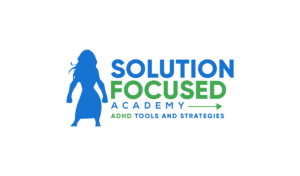Who Is Stopping You?
 Stella, a high-achieving entrepreneur in the event planning sector, came to her recent coaching session wanting to figure out how to create “breathing room” between the completion of one major project and the launch of another so that she doesn’t repeat the pattern of cascading from one chaotic situation to the next. Her past pattern of remaining in a constant state of overwhelm leaves her feeling exhausted and drained and puts a strain on her important relationships. She recognizes that she is the source of the barriers to peace and, therefore, she has the power to remove them to make space for a different reality.
Stella, a high-achieving entrepreneur in the event planning sector, came to her recent coaching session wanting to figure out how to create “breathing room” between the completion of one major project and the launch of another so that she doesn’t repeat the pattern of cascading from one chaotic situation to the next. Her past pattern of remaining in a constant state of overwhelm leaves her feeling exhausted and drained and puts a strain on her important relationships. She recognizes that she is the source of the barriers to peace and, therefore, she has the power to remove them to make space for a different reality.
Together, we explored what breathing room would look like for her and how much time she would need to devote to it for it to be effective. She discovered that recovery and reset for her involves three phases: physical exertion on a mindless task followed by opportunity for reflection on the completed work project followed by reconnecting with her husband and children through fun and family time. We examined each phase and how she would shape and execute it.
 Stella agreed that all three phases are critical for her to keep the chaos at bay, yet, in planning for the execution of the final stage, she set it up in a way that prevented her from following through. First, she explained that she doesn’t know how to have fun, so I asked, “What’s more important, for you to have fun or for your children and husband to create a shared memory with you in which they’re having fun?” Perspective-taking is a difficult task for the ADHD brain, so Stella paused to process through this consideration of “fun.”
Stella agreed that all three phases are critical for her to keep the chaos at bay, yet, in planning for the execution of the final stage, she set it up in a way that prevented her from following through. First, she explained that she doesn’t know how to have fun, so I asked, “What’s more important, for you to have fun or for your children and husband to create a shared memory with you in which they’re having fun?” Perspective-taking is a difficult task for the ADHD brain, so Stella paused to process through this consideration of “fun.”
I then asked her what activity her family would enjoy doing together. Her brain was primed, now, to think of the fun from her children’s point of view. She offered up some ideas and said she would have to do some research to determine what’s offered in her city and when and the cost and so forth.
“That sounds complicated and intensive,” I said. “It sounds like this is becoming your next big project. How does this fit in the timeframe you allotted for breathing room?”
Stella sighed. In a moment of self-awareness, she said, “I’m doing it again. I always tell them we’ll have some fun, we’ll celebrate, when I get to the other side of my big event, but we never do.” This acknowledgement of the mismatch between her stated intentions and her actions caused her to pause and re-assess. It wasn’t that she always has too much to do or that “things just don’t work out,” as she’s excused the mismatch in the past.
The ADHD issues affecting Stella’s ability to execute fun with her family include:
- Difficulty with perspective taking
- Difficulty recalling past events in order to modify approach to current events
- Difficulty holding in mind the stated objective
- Difficulty simplifying activities
- Perfectionism
- Procrastination
Through collaborative strategizing during the coaching session, Stella worked out how she will treat her family to some togetherness and fun, thus completing the third stage of recovery and reset so that she is rejuvenated and ready to begin on her next big work project. She decided not to postpone the fun until she could find the perfect activity, she called to mind

past experiences and what she has learned, and she opted for a simpler more immediate activity in tune with her family’s interests,
More than that, Stella gained more practice in recognizing her ADHD symptoms overriding her executive functions, thus developing and strengthening her ADHD management skills.

